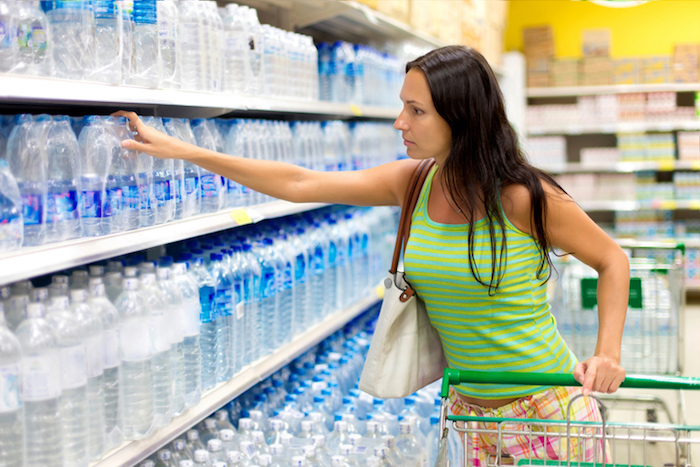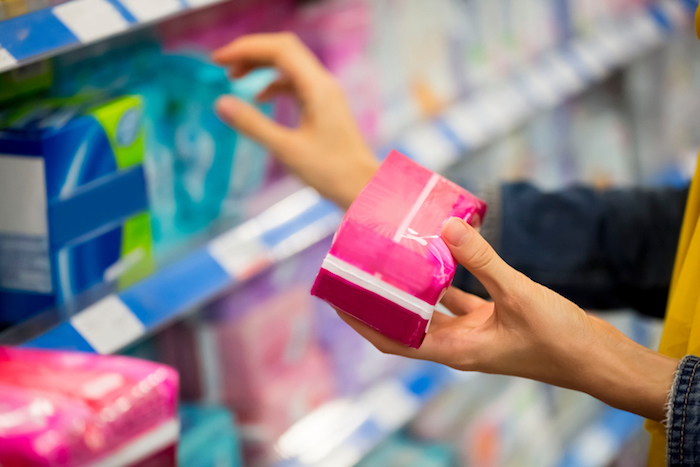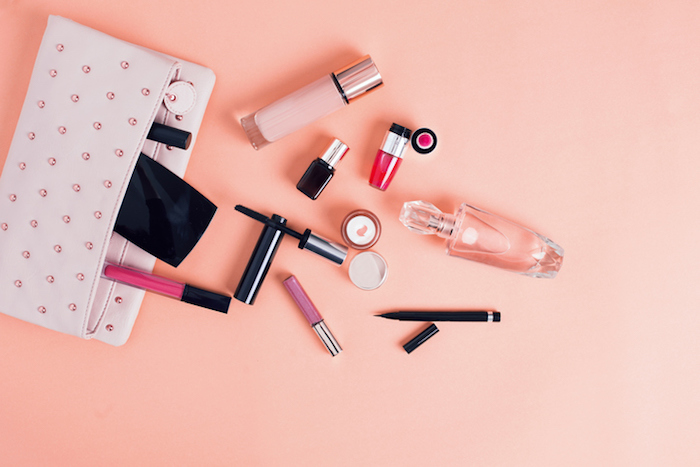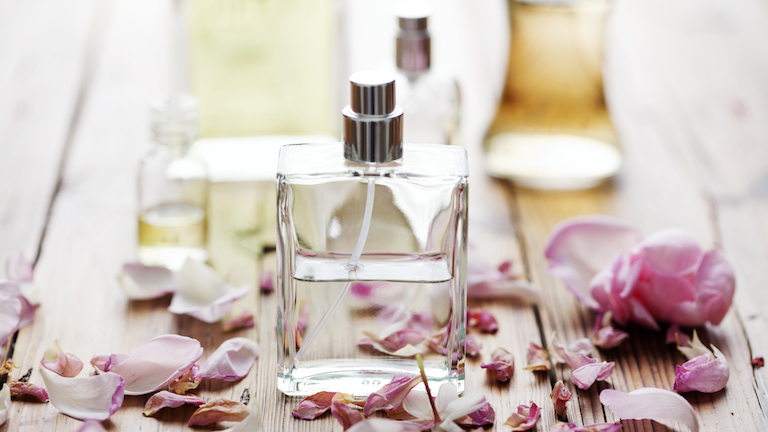The popular weedkiller Roundup has hit the headlines after a US court has ruled it causes cancer. But many other everyday items could also be damaging your hormones too, finds Anna Magee
Weed ‘Killers’
Some experts have claimed that the active ingredient glyphosate found in the popular weedkiller Roundup – widely available in the UK – could be carcinogenic.
In fact, the Daily Mail reported this week that school groundsman Dewayne Johnson has been awarded $289 million by jury, who found weedkiller Roundup did in fact give him lymphoma. He was diagnosed with non-Hodgkin’s lymphoma in 2014, having worked as a school groundskeeper in California and spraying Roundup every day. He is said to have just weeks to live.
Glyphosate is a commonly used herbicide in farming and in household products. It is used to kill weeds and grasses that compete with agricultural crops. Reportedly, glyphosate was the most used herbicide in the United States’ agricultural sector and the second-most used in home and garden in 2007.
Discovered by Monsanto chemist John E. Franz in 1970, it was then brought to the market for agricultural uses in 1974 under the Roundup trade name.
The chemical giant that is Monsanto is being sued by more than 400 people. A trail in San Francisco is underway after a school groundskeeper named Johnson, was said to be dying of non-Hodgkin’s lymphoma. This has been the first case a jury has heard alleging that the weedkiller Roundup could cause cancer.
Roundup products are reportedly registered in 130 countries and approved for use on over 100 crops. Glyphosate has been found in food and water sources and even in the urine of agricultural workers and others. A number of different countries have policies banning or restricting the sale and use of this commonly used herbicide, glyphosate.
Water bottles and other plastics
‘Chemicals in plastics behave like oestrogen in our systems when they reach our bloodstream’, says Dr Jayasena. According to the Food Standards Agency (FSA), there is European legislation in place which sets a maximum limit on BPA from plastics but such risks are being re-evaulated by European authorities because of new scientific information emerging on the dangers of such exposure.
BPA and other xenoestrogens not only effect our waistlines but also our reproductive systems. ‘Men’s sperm counts have decreased dramatically in the last decade and we’re now looking at the part hormone disrupting chemicals in our packaging, food and water play in this,’ Dr Jayasena explains.
‘Many problems are co-related with BPA from weight gain to endometriosis and breast cancer,’ says Dr Sara Gottfried, a US gynaecologist and author of The Hormone Cure and new book, Younger: The Breakthrough Programme to Reset our Genes and Reverse Ageing. ‘This and other xenoestrogen chemicals build up in the body, accelerating ageing and hindering weight loss.
Alarmingly, while some companies market plastic products as ‘BPA-free’, substitute chemicals, known as BPS and BPF, may be just as dangerous. A study in April this year by the Endocrine Society in the US found that exposure to BPS could increase the aggressiveness of breast cancer and a paper published in Environmental Health Perspectives in 2015 reviewed 32 studies on the subject and found that like all three chemicals were hormone disruptors linked to problems such as weight gain and reproductive issue.

That humble water bottle you’re so attached to? New research suggests you might need to rethink it. A large scale study released today has found that a staggering 90 per of the world’s most popular bottled water brands contain pieces of microplastics small enough to be ingested and absorbed by the human body.
The scientists based at the State University of New York in Fredonia were asked by journalism organisation Orb Media to examine brands of bottled water. Concentrations found were as high as 10,000 plastic pieces for every litre of water.
The World Health Organisation has recently announced it will launch a review into the potential risks of plastic in drinking water and although water bottle companies have been contacted they have stood by the quality and safety of their products.
So what’s the problem?
So why should we worry? Because toxic chemicals in our everyday lives known as ‘xenoestrogens’, found in plastics, cosmetics, sanitary napkins, till receipts and even tap water can mimic the hormone oestrogen and are linked not only to middle-aged spread but also reproductive problems, learning difficulties and even cancer.
The risk of these chemicals is enormous and we’re just at the start of learning what they do
According to one study last month from the University Of Exeter published in BMJ Open, almost 90 per cent of teenagers have these gender-bending chemicals from plastic in their bodies.
The chief offender is Bisphenol-A or BPA, which is found in plastic containers, water bottles and linings for tinned foods and drinks. In fact, a 2016 study found that two out of three canned foods tested positive for BPA. The most recent findings from this study at University of Exeter add to a growing body evidence; terrifyingly, a survey by the US Centers for Disease Control found that 93 per cent of the population had measurable amounts of BPA.
‘We know little about such hormone altering chemicals but our increasing exposure to them is a cause for concern,’ says Dr Channa Jayasena, a clinical senior lecturer and consultant in reproductive endocrinology at Imperial College London. ‘The risk of these endocrine disrupting chemicals [EDCs] is enormous and we’re just at the start of learning what they do,’ says Dr Jayasena. ‘My concern is that by the time we work out what they actually do, they might be causing diseases we don’t know about.’
So, what can you do? Start by identifying the sources of fake oestrogens in your life and take simple steps to detox them.
How to detox:
‘Heat, microwave use, dishwasher use or leaving a plastic water bottle in the sun can all release such chemicals,’ says Dr Gottfried. Avoid microwaving your food with cling film over it or while it’s in plastic containers. ‘Use stainless steel water bottles where you can, cook and store food in glass, ceramic or stainless steel and use glass or microwave-safe ceramics for microwaving,’ suggests Dr Gottried. ‘If you must use plastic containers, don’t heat them up’. Try and avoid tinned food or rinse the food you do eat from them carefully.
Unfiltered tap water, fruit and vegetables
‘Xenoestrogen chemicals are in our water supply, fruit and vegetables thanks to their use in farming,’ says Dr Jayasena. For example, while DDT, a pesticide with proven hormone disrupting effects has now been banned, according to the Soil Association, glyphosate, a similar xenostrogen chemical linked to breast cancer and obesity and found in the common garden weedkiller called Round Up is still commonly available in garden centres and supermarkets. It’s just one of many pesticides still used in Britain that are made from chemicals with endocrine disrupting effects, the residue of which leeches into our tap water and rivers (research by Department of the Environment, Food and Rural affairs found that half of the fish in our rivers show signs of female sex organs) and remains on the skin of fruit and vegetables.
How to detox:
Drink filtered water, suggests Dr Gottfried. Carbon filters such as Brita use carbon to absorb impurities and contaminants and they are cheap – their new Fill & Go bottle (£16.49 from Healthista.com) is also BPA-free. Reverse osmosis filters can remove more chemicals but require fitting to taps at home and can be expensive (around £200 from uk-water-filters.co.uk). Nutritional therapist Daniel O’Shannessy, director of Bodhimaya Health Centre (bodhimaya.com) says you can help remove pesticides from the skin of fruit and vegetables by soaking them in water and a tablespoon of apple cider vinegar or using a product such as Veggie Wash (Veggie Wash Concentrate £3.16 from Healthista Shop) before cooking. You can also check websites such as the Environmental Working Group on ewg.org for their ‘dirty dozen’ and ‘clean fifteen’, a list of fruit and vegetables that are most and least contaminated with pesticides, respectively.
Till receipts, sanitary products and napkins
Think again next time you use your credit card. ‘The shiny coating on till receipts is giving you a dose of BPA everytime you touch it and we know the skin absorbs such chemicals almost as well as when we ingest them,’ says Dr Gottfried. Indeed, France is currently seeking an EU-wide ban on till receipts containing BPA and in France most receipts are now marked ‘sans BPA’. Such insidious sources of synthetic oestrogens contribute to your over all toxic load, increasing your risk of oestrogen dominance, says Dr Gottfried. Other paper sources of synthetic oestrogens include sanitary towels and tampons, which contains xenoestrogens called dioxins – linked to fertility and immune issues and endometriosis – and table napkins which may be coated in BPA.

How to detox:
Try and go receipt free, suggests Dr Gottfried. Look for organic or dioxin-free sanitary napkins and tampons that have not been bleached or dyed such as Natracare (Natracare Organic Applicator Tampons £2.99 from Healthista Shop) and opt for unbleached, uncoated table napkins such as those by Vegware, from vegware.com (or go cloth instead).
Fillings
BPA is used in plastics and the resins from which composite fillings are made. A 2010 study published in the Journal of Dental Hygeine found that the fake oestrogen chemical BPA (see above) was found in the saliva of all 30 dental patients surveyed and another in 2012 published in the journal Paediatrics found that children fitted with fillings made from a substance containing BPA showed more behavioural problems compared to their peers.
How to detox:
‘Composite fillings are the least expensive [around £200 a tooth] of all fillings after mercury and as mercury has so many confirmed dangers, many people opt for composite,’ explains dentist James Goolnik of Bow Lane Dental Group. ‘But while many contain synthetic oestrogen chemicals such as BPA, it’s now possible to ask for BPA-free composite fillings’. Alternatively, porcelain won’t contain toxic chemicals, is tooth coloured and more durable than composite and is about £500 a tooth. If the filling isn’t visible, the best option is gold as it virtually lasts forever, is kinder to your tooth and also contains no toxic chemicals but at around £800 a filling, it’s pricey. ‘I still wouldn’t recommend having plastic fillings removed because of the BPA effect as the removal process not only leads to more tooth tissue being damaged it can aggravate the release of more chemicals into the system.’
Cosmetics
That lipstick you can’t live without could be adding to your ostrogen load. In the 1990s, chemicals known as parabens (common names include methyparaben and butylparaben) in body creams, lipsticks, scrubs, shampoos and more were identified as xenoestrogens and in 2004, British researcher Philippa Darbre found them in breast cancer cells. Likewise, a family of chemicals known as sulphates also have an oestrogen like effect on the body with common names are sodium lauryl sulphate and sodium laureth sulphate – common in shampoos, body washes, detergents and soaps – responsible for a product’s lathering.

How to detox:
‘Ignore labels such as chemical-free, ‘natural’ or ‘for sensitive skin’ as these have no regulated meaning,’ says Dr Gottfried. Choose organic if you can for your skincare and make-up suggests Dr Gottfried. Naturisimo, MYPure, Red and Green People have effective organic ranges with no parabens or sulphates and mainstream beauty and hair product manufacturers are now bringing out products marked sulphate- or paraben-free.
Perfumes and scented candles
‘Many commercial perfumes and scented candles contain phthalates, a class of chemicals found in a surprising number of common household products such as shampoos, deodorants, body washes, hair gels and sprays and nail polishes,’ says Dr Gottfried. There’s little doubt phthalate chemicals are a key contributor to the inability to lose weight caused by oestrogen dominance, she says. Research into the effects of phthalate is ongoing but ‘we know they cause birth defects in male foetuses, are associated with poor egg quality and early menopause in women and may also be linked to breast cancer and Type-2 diabetes’.
How to detox:
Look for phthalate-free cosmetics and unscented candles ideally made from soya wax. High grade essential oils in water used with an oil burner are a great alternative to scented candles. Try Absolute Aromas from Healthista Shop.
3 ways to help detox excess oestrogen
Simple lifestyle measures can help, says Daniel O’Shaunnessy, a nutritional therapist at Bodhimaya Health Centre, London.
Eat flaxseeds
Constipation can lead to hormone imbalance by slowing down the passing of hormones from food and water through the gut. Flaxseeds contain fibre that helps. Try a tablespoon soaked overnight in a glass of water and then added to smoothies, porridge or taken neat. We like Linwoods Milled flaxseeds (£5.19 from Healthista Shop).
Eat more broccoli
Cruciferous vegetables such as broccoli and cauliflower help detoxify fake oestrogen from the liver.
Take a good probiotic
This will help balance the beneficial microflora in your gut which can help increase motility, so you eliminate toxins faster. Try Biocare Acidophilus Powder £24.35 from Healthista Shop.
More Healthista Content:
8 everyday items that could affect fertility
Trying to conceive? These 10 fertility nutrients could help
9 proven ways to prevent cancer
12 easy ways to cut back on plastic
Like this article? Sign up to our newsletter to get more articles like this delivered straight to your inbox.





















































